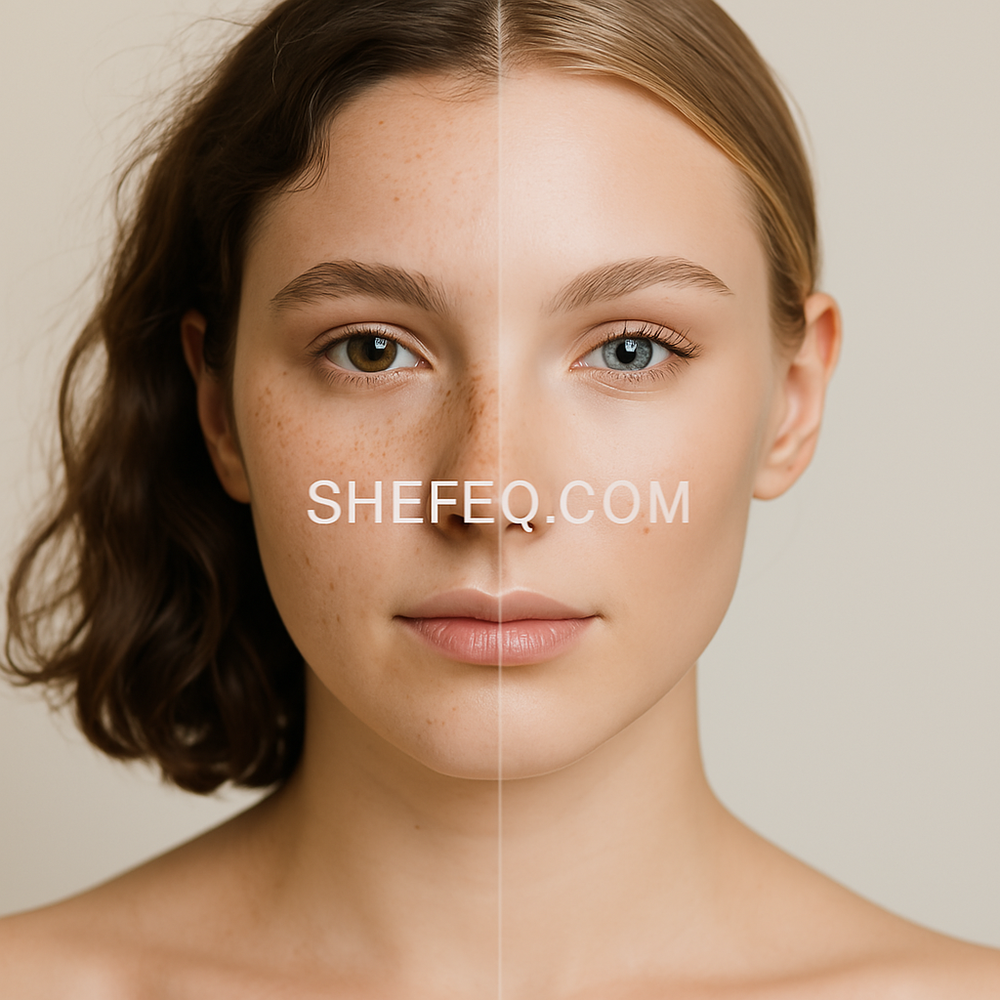Introduction: Where Does Beauty Come From?
“She’s been like this since birth...” “Beauty is inherited...” — we often hear phrases like these. But is beauty really just a matter of genetics? Or do we shape our appearance ourselves through the lifestyle choices we make every day?
In this article, we will explore the answer from scientific, social, and psychological perspectives. We’ll look at both inherited and acquired aspects of beauty — from the wonders of genetics to the beauty we build with our own hands.
1. What is Beauty and Who Defines It?
Beauty is a relative concept. It changes with cultures, eras, and trends. However, biologically, our brains tend to perceive certain features — symmetry, health, radiance — as attractive.
Research shows:
-
Symmetrical facial features are seen as a sign of genetic fitness.
-
Glowing skin, healthy hair, white teeth — indicate overall well-being.
-
Proportions and harmony — bring “visual comfort” to the brain.
Yes, genetic factors do influence beauty — especially at first glance. But that’s only part of the picture.
2. The Role of Genetics in Beauty: Encoded Attraction
Key genetic elements influencing appearance:
-
Skin tone and type (oily, dry, combination)
-
Hair thickness and texture
-
Eye color and shape
-
Facial symmetry
-
Height and body structure
-
Bone structure (jaw, nose, cheekbones)
These are formed in the womb and are difficult to change. For example, if both parents have fair, sensitive skin, their child is likely to have similar skin.
Are There “Beauty Genes”?
Some genetic variations are linked to features like skin aging, hair loss, and pigmentation:
-
MC1R – skin tone and UV sensitivity
-
FGF5 – hair growth rate
-
EDAR – hair thickness and texture
But possessing these genes is not enough. Their expression is highly influenced by lifestyle and environment — this brings us to epigenetics.
3. Epigenetics – Beauty Beyond DNA
Epigenetics is the science of how and when genes are “switched on or off.”
In other words, you inherit your genes — but how they function depends on your lifestyle.
For instance:
-
Poor sleep, stress, sugary foods, smoking — can dull skin that is genetically radiant.
-
On the other hand, healthy eating, SPF use, and physical activity — can balance out genetic weaknesses.
So, beauty is not just about what you’re born with — it’s about how you live.
4. Acquired Factors That Shape Beauty
Nutrition
Skin hydration, radiance, and hair shine all depend on diet. Antioxidants, collagen, omega‑3 fats, vitamins C and E greatly enhance natural beauty.
Water Intake
Water preserves the skin’s elasticity and plumpness. Even someone with genetically dry skin can keep their skin healthy by drinking enough water.
Sleep Routine
At night, the body produces collagen and melatonin. Lack of sleep leads to wrinkles, dark under-eye circles — even if it’s not genetic.
Sun Protection (SPF)
80% of premature aging is caused by sun exposure. A person with genetically beautiful skin can lose that advantage over time without SPF.
5. Psychological Factors – Self-Acceptance and Attraction
Scientific studies show: people who are confident, happy, and positive appear more attractive — even if they don’t meet classic beauty standards.
As psychologist Amy Cuddy said in her TED talk:
“Body language and inner state directly affect outward appearance.”
This proves that self-love and confidence can outshine even the strongest genes.
6. Aesthetic Interventions and Technology
Today, millions turn to aesthetic procedures — plastic surgery, fillers, laser treatments, hair transplants, and more.
This marks a new era — the age of “creating your own beauty.”
But aesthetic changes are only truly successful when combined with healthy psychology and a natural beauty mindset.
7. Famous Faces – Genetic or Self-Care?
Beyoncé – Strong genetic foundation + professional care, nutrition, and disciplineJennifer Lopez – Looks youthful at 50 thanks to lifestyle, sleep, exercise, and balanced diet
Angelina Jolie – Naturally attractive features + minimalist approach and active life
These examples show that even with good genes, maintenance takes effort.
8. Real-Life Example: Sisters with Different Looks
Two sisters with the same genes but different lifestyles can look 10 years apart in age.
This isn’t just speculation — epigenetics confirms it.
Skincare, emotional health, stress management, sleep, and diet — all contribute to how beauty develops.
9. Final Thought: Can We Reprogram Beauty Codes?
Yes — you may not be born “conventionally beautiful.” But you can:
-
Brighten your skin
-
Revive your hair
-
Sculpt your face
-
Build self-confidence
Beauty isn’t only a gift — it’s a story you write daily.
Formula: Genetic Base + Lifestyle = Your Beauty
Beauty is 50% inheritance, 50% choice.
What you're born with is the foundation — but what you build on it is your responsibility.
Beauty is not just inheritance — it's commitment.

